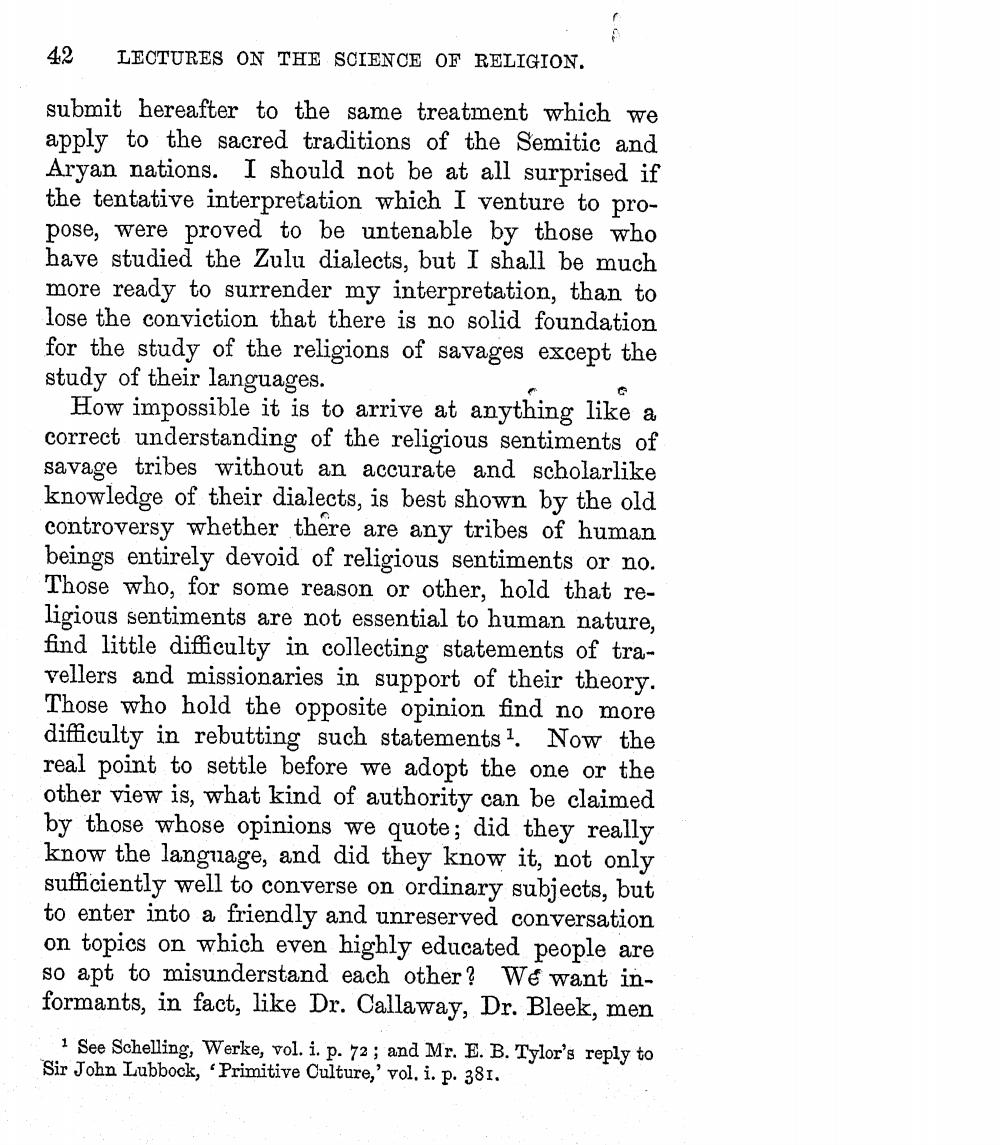________________
42
LECTURES ON THE SCIENCE OF RELIGION.
submit hereafter to the same treatment which we apply to the sacred traditions of the Semitic and Aryan nations. I should not be at all surprised if the tentative interpretation which I venture to propose, were proved to be untenable by those who have studied the Zulu dialects, but I shall be much more ready to surrender my interpretation, than to lose the conviction that there is no solid foundation for the study of the religions of savages except the study of their languages.
How impossible it is to arrive at anything like a correct understanding of the religious sentiments of savage tribes without an accurate and scholarlike knowledge of their dialects, is best shown by the old controversy whether there are any tribes of human beings entirely devoid of religious sentiments or no. Those who, for some reason or other, hold that religious sentiments are not essential to human nature, find little difficulty in collecting statements of travellers and missionaries in support of their theory. Those who hold the opposite opinion find no more difficulty in rebutting such statements. Now the real point to settle before we adopt the one or the other view is, what kind of authority can be claimed by those whose opinions we quote; did they really know the language, and did they know it, not only sufficiently well to converse on ordinary subjects, but to enter into a friendly and unreserved conversation on topics on which even highly educated people are so apt to misunderstand each other? We want informants, in fact, like Dr. Callaway, Dr. Bleek, men
1 See Schelling, Werke, vol. i. p. 72; and Mr. E. B. Tylor's reply to Sir John Lubbock, ‘Primitive Culture,' vol. i. p. 381.




